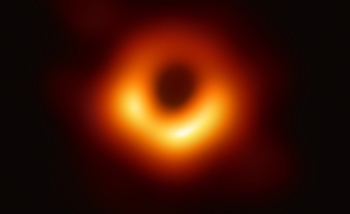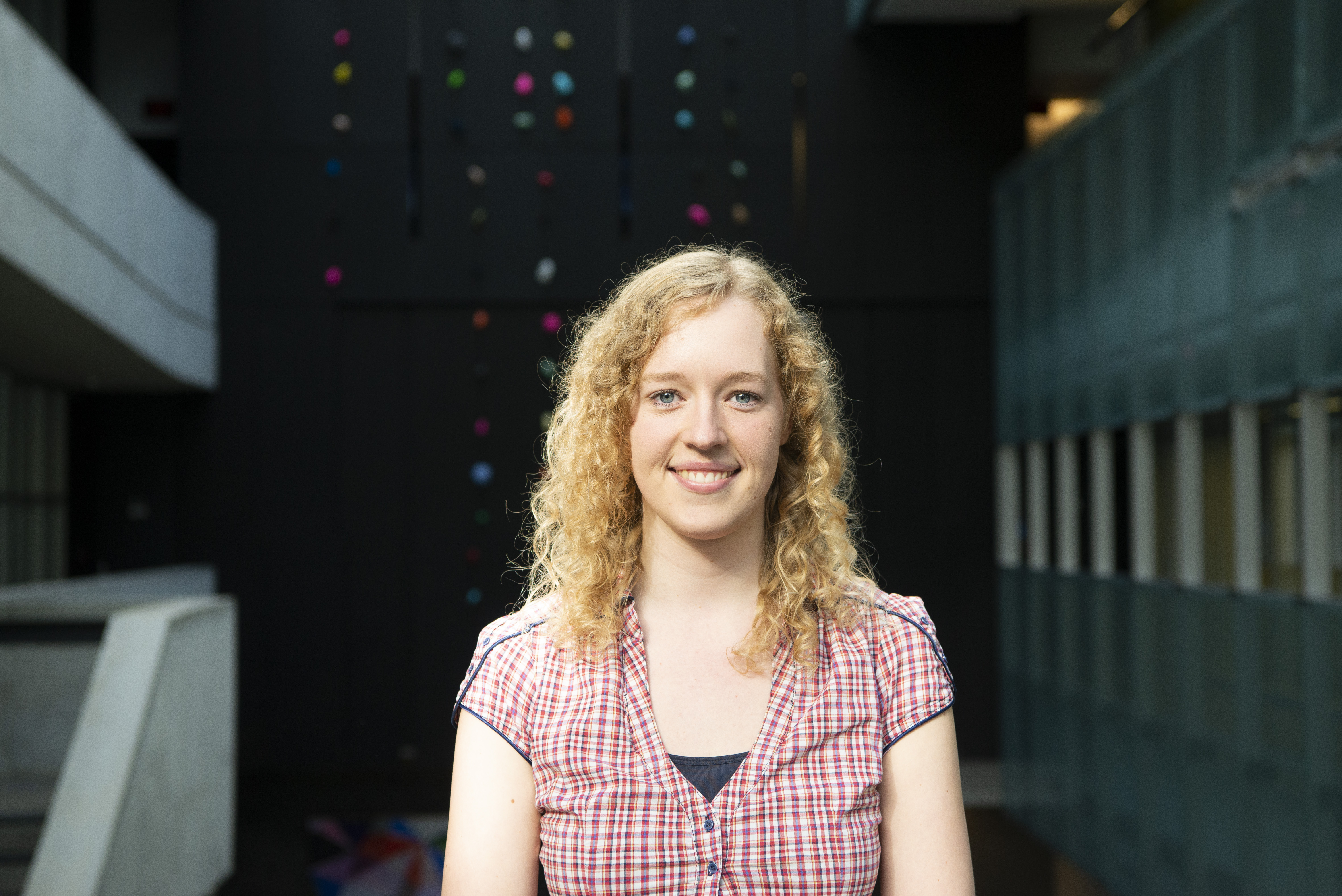Earning a PhD is a remarkable achievement that reflects years of dedication and effort — and it’s not one that many 23-year-olds have already crossed off their “to do” lists.
But that’s just what Perimeter postdoctoral researcher Lena Funcke did. Funcke is the recipient of this year’s Dieter Rampacher Prize, awarded by the Max Planck Society to just one of the PhD graduates among its network of 84 institutes. The prize is reserved for the youngest PhD recipient (“usually between the ages of 25 to 27,” per the award description) and recognizes Funcke’s outstanding doctoral work, which was awarded the highest distinction, summa cum laude.
Funcke’s PhD research, conducted at MPP and LMU Munich, focused on fundamental questions at the interface of particle physics and cosmology. The Standard Model of particle physics is an incredibly successful theory that has predicted and explained much of what we know about particles and their interactions, but there are some discrepancies between the theory and our observations.
“A particularly interesting example is that the Standard Model predicts massless neutrinos — but we have experimentally determined that neutrinos have mass,” says Funcke. “That was the major topic of my PhD research: to build a model beyond the Standard Model that can explain these masses.”
Together with her PhD supervisor, Gia Dvali, Funcke developed a model in which neutrino masses are generated very late in the history of the universe. “It’s a unique approach, because other models usually predict neutrino masses to arise shortly after the big bang,” Funcke says. “If our model is true, this could have far-reaching implications for our understanding of the recent evolution of the universe.”
While many other hypotheses that reach beyond the Standard Model are decades from experimental verification, Funcke’s model makes specific predictions that can be tested soon — one within this upcoming year and another within the next decade. “That’s the most exciting part about it,” Funcke says.
Now, Funcke is exploring the cosmological and astrophysical consequences of her model as a postdoctoral researcher at Perimeter Institute. She’s particularly appreciative of the opportunities for collaboration with local and visiting scientists from institutes around the world.
“I benefit a lot from the interdisciplinary nature of Perimeter’s research community and the open, collaborative atmosphere that distinguishes the Institute,” she says. Perimeter’s environment has proved fertile ground for Funcke’s newly emerging projects, which draw on developing technologies, including quantum computers.
Funcke will receive the award at the general meeting of the Max Planck Society at the end of June in Hamburg. The prize was established by Hermann Rampacher in memory of his brother, Dieter Rampacher, a physics student who died in battle in 1945 at the age of 20.
So just how does one end up finishing a PhD at 23? “Many different reasons,” Funcke laughs. “In short, my passion for learning has just let everything happen a bit faster.”
A precocious child, Funcke skipped two full years of primary school. “Then, when I was in high school, I realized I was way too excited about things that went beyond the high school curriculum,” she says. Funcke enrolled in a program at her local university that allowed her to substitute some high school classes for university-level ones.
With several university courses in physics and philosophy — and her first co-authored scientific article — under her belt by the time she finished high school, Funcke completed her undergraduate degree in physics in just two years. At the age of 20, she wrapped up a one-year master’s in physics at Cambridge with distinction. She followed that up with a three-year PhD in Germany.
Her drive to answer deep questions about the universe is fuelled by a relentless curiosity. “I have always been very excited by fundamental philosophical questions,” Funcke says. “What are the underlying structures of our world? How are these smallest building blocks connected to the largest structures in the universe?
“Philosophy is asking great questions, but math actually gives a very good tool for answering these questions. Physics is a great combination of both areas.”
Update (July 2019): Funcke's PhD thesis was also awarded the Arnold Sommerfeld PhD Prize, awarded each year to the two best PhD theses of the previous year at LMU Munich.
About PI
Perimeter Institute is the world’s largest research hub devoted to theoretical physics. The independent Institute was founded in 1999 to foster breakthroughs in the fundamental understanding of our universe, from the smallest particles to the entire cosmos. Research at Perimeter is motivated by the understanding that fundamental science advances human knowledge and catalyzes innovation, and that today’s theoretical physics is tomorrow’s technology. Located in the Region of Waterloo, the not-for-profit Institute is a unique public-private endeavour, including the Governments of Ontario and Canada, that enables cutting-edge research, trains the next generation of scientific pioneers, and shares the power of physics through award-winning educational outreach and public engagement.
You might be interested in


Spiralling light from M87’s supermassive black hole reveals strong magnetic fields
November 8, 2023


